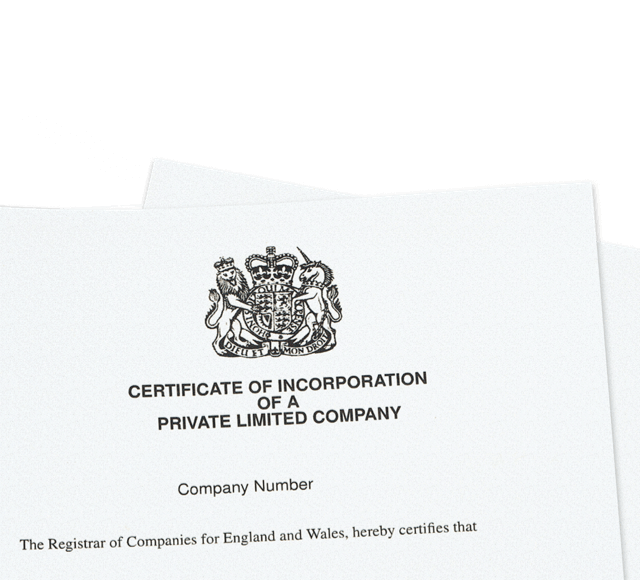Step-by-Step Overview to Browsing the Commercial Registration Electronic System for Company Formation
Step-by-Step Overview to Browsing the Commercial Registration Electronic System for Company Formation
Blog Article
Browsing the Complex Globe of Company Formation: Insights and Techniques
Starting the trip of establishing a company can be a complicated task, particularly in a landscape where laws are continuously advancing, and the risks are high. As entrepreneurs established out to browse the elaborate globe of firm formation, it comes to be essential to outfit oneself with a deep understanding of the elaborate subtleties that specify the procedure. From selecting one of the most suitable service framework to guaranteeing rigorous legal compliance and designing effective tax planning strategies, the path to producing an effective business entity is riddled with complexities. By untangling the layers of intricacies and leveraging insightful techniques, entrepreneurs can pave the method for a solid foundation that sets the stage for future development and sustainability.
Organization Framework Option
In the world of company formation, the crucial decision of choosing the suitable business framework lays the foundation for the entity's operational and lawful structure. The option of company framework considerably impacts numerous elements of the organization, consisting of tax, obligation, administration control, and compliance needs. Business owners should thoroughly evaluate the available choices, such as sole proprietorship, collaboration, limited responsibility firm (LLC), or company, to figure out the most appropriate structure that straightens with their service goals and conditions.
One typical framework is the sole proprietorship, where the proprietor and the business are considered the same legal entity. Recognizing the subtleties of each organization structure is vital in making a notified choice that establishes a solid groundwork for the business's future success.
Legal Conformity Fundamentals
With the foundation of a suitable service structure in area, making certain legal compliance fundamentals comes to be paramount for safeguarding the entity's procedures and preserving governing adherence. Legal compliance is critical for firms to operate within the borders of the regulation and avoid potential charges or lawful concerns.
To ensure legal compliance, business need to regularly evaluate and upgrade their treatments and policies to show any type of changes in laws. It is likewise essential to inform staff members about conformity requirements and supply training to mitigate dangers. Looking for legal counsel or conformity experts can additionally help companies browse the complicated legal landscape and stay up to date with advancing policies. By prioritizing lawful compliance basics, companies can develop a strong structure for lasting growth and long-lasting success.
Tax Obligation Planning Considerations

Additionally, tax preparation need to incorporate strategies to capitalize on offered tax deductions, credits, and incentives. By tactically timing revenue and expenditures, companies can potentially lower their taxed revenue and Discover More Here general tax concern. It is likewise essential to stay educated regarding modifications in tax laws that may influence the organization, adjusting methods appropriately to remain tax-efficient.
In addition, international tax obligation planning factors to consider might occur for companies operating throughout borders, entailing intricacies such as transfer pricing and international tax obligation credit scores - company formation. Looking for support from tax specialists can assist browse these intricacies and create an extensive tax obligation plan customized to the business's demands
Strategic Financial Management
Purposefully handling finances is an essential aspect of guiding a company towards sustainable growth and productivity. Efficient economic management entails a comprehensive technique to overseeing a firm's financial resources, investments, and overall economic wellness. One crucial aspect of strategic financial administration is budgeting. By developing comprehensive budget plans that straighten with the company's goals and purposes, businesses can assign resources efficiently and track performance versus economic targets.

One more critical element is money flow management. Keeping track of cash money inflows and discharges, managing working resources effectively, and making certain enough liquidity are important for the day-to-day procedures and lasting stability of a business. In addition, strategic financial management involves threat assessment and mitigation methods. By determining financial risks such as market volatility, credit threats, or regulative changes, companies can proactively apply procedures to protect their financial security.
Additionally, financial coverage and analysis play an essential role in critical decision-making. By generating exact financial records and conducting comprehensive analysis, organizations can acquire beneficial insights into their economic efficiency, identify locations for enhancement, and make educated calculated choices that drive sustainable development and success.
Development and Development Techniques
To propel a company in the direction of raised market existence and productivity, strategic growth and development strategies should be thoroughly devised and executed. One efficient strategy for growth is diversity, where a firm gets this contact form in brand-new markets or offers new items or services to capitalize and decrease dangers on arising opportunities. One more technique is market infiltration, concentrating on raising market show to existing products in present markets with aggressive advertising or prices approaches. In addition, tactical partnerships or partnerships with other services can supply access to new sources, modern technologies, or markets that increase development. Additionally, procurements and mergings can be strategic for expanding market reach, acquiring competitive advantages, or obtaining crucial ability. It is essential for companies to conduct thorough market study, financial analysis, and threat assessments prior to starting any development technique to guarantee sustainability and success. By thoroughly executing and intending growth strategies, firms can navigate the intricacies of expansion while optimizing value for stakeholders.

Conclusion
Finally, browsing the complexities of firm formation requires mindful consideration of company structure, lawful compliance, tax obligation planning, financial monitoring, and development techniques. By strategically picking the ideal business framework, making sure legal conformity, preparing for tax obligations, taking care of finances effectively, and carrying out growth approaches, firms can set themselves up for success in the affordable business setting. It is essential for organizations to approach firm development with a calculated and comprehensive mindset to attain long-term success.
In the realm of firm formation, the crucial choice of selecting the proper organization structure lays the structure for the entity's functional and legal framework. Business owners must thoroughly examine the available options, such as sole proprietorship, collaboration, limited liability business (LLC), or company, to determine the most appropriate framework that aligns with their service objectives and circumstances.
By producing in-depth budgets that align with the firm's purposes and goals, businesses can assign resources effectively and track efficiency versus financial targets.
In conclusion, navigating the complexities of company development calls for mindful factor to consider of business structure, legal compliance, tax planning, financial monitoring, and development strategies. By additional resources strategically selecting the best company structure, making sure legal compliance, planning for taxes, taking care of funds effectively, and executing growth techniques, companies can establish themselves up for success in the affordable service atmosphere.
Report this page